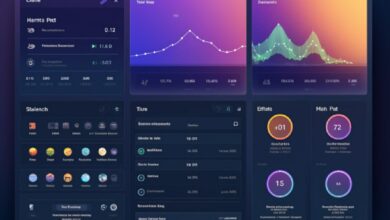Suno and RIAA Battle Over AI’s Use of Copyrighted Music in Training

Key Insights:
- Suno admits to using copyrighted music for AI training, asserting fair use in ongoing RIAA lawsuit.
- RIAA challenges Suno’s AI training practices, labeling them industrial-scale infringement, and jeopardizing artists’ incomes.
- Meta launches AI music platforms, training models with owned or licensed music, intensifying AI-generated music industry debate.
Music generation startup Suno has openly admitted to using copyrighted songs in training its artificial intelligence model, asserting the practice falls under the fair use doctrine.
This admission was made in a recent court filing amidst a lawsuit filed by the Recording Industry Association of America (RIAA) on June 24. The RIAA alleges that Suno, along with another startup, Udio, has engaged in unauthorized use of copyrighted music to train their AI models.
Mikey Shulman, Suno’s co-founder and CEO, defended this practice in a blog post, comparing it to a child learning to write their rock songs after listening to the genre. Shulman emphasized that training AI models using open internet data, which includes copyrighted material, should be considered legal under fair use.
RIAA’s Rebuttal and Legal Claims
The RIAA has strongly refuted Suno’s claims, describing the company’s actions as industrial-scale infringement. The RIAA contends that Suno’s extensive use of copyrighted material without obtaining permission does not qualify as fair use but rather constitutes theft that jeopardizes artists’ livelihoods. According to the lawsuit, Suno and Udio have utilized copyrighted music without authorization to train their AI models.
The lawsuit highlights that Suno’s investors have previously hinted at the company’s use of copyrighted material, which was explicitly acknowledged in the recent court filing.
The filing states,
“It is no secret that the tens of millions of recordings that Suno’s model was trained on presumably included recordings whose rights are owned by the Plaintiffs in this case.”
The Concept of Fair Use in AI Model Training
Central to this legal battle is the concept of fair use, which permits limited use of copyrighted material without permission under specific conditions such as criticism, comment, news reporting, teaching, scholarship, or research. However, the application of fair use to AI model training remains largely unexplored.
The outcome of this case could set a significant precedent not only for Suno and Udio but also for the broader AI and music industries. The court’s decision could potentially influence how AI models are trained in the future and determine the boundaries of fair use in the context of AI-generated content.
Despite the ongoing legal challenges, Suno has announced ambitious plans for the future. On May 21, the company secured $125 million from investors to democratize beat-making. The funds will be used for product development and team expansion. Suno’s initial product allows users to create songs based on simple text prompts, offering options for including vocals or keeping the compositions purely instrumental.
The issue of AI-generated music has been contentious within the music industry. Major players such as Universal Music and Sony have voiced opposition to developers using their artists’ copyrighted content. This controversy has been further intensified by the recent launches of AI-generated music platforms by tech giants Google and Meta.
Meta’s AI Music Platforms and Industry Debate
In August 2023, Meta, the parent company of Facebook and Instagram, introduced a suite of generative AI models named AudioCraft. These models, including MusicGen and AudioGen, generate music from various inputs, with MusicGen operating off text-based prompts to create new audio. Meta stated that its MusicGen model was trained using music it owns or has specifically licensed.
The launch of Meta’s AI music platforms comes amid ongoing controversy surrounding the use of copyrighted work in AI training. Meta itself is facing a lawsuit for copyright infringement during AI training. The company has made MusicGen and AudioGen available to the research community and developers, suggesting that with more advanced controls, these models could become valuable tools for both amateurs and professionals in the music industry.
Editorial credit: Ralf Liebhold / Shutterstock.com
Tokenhell produces content exposure for over 5,000 crypto companies and you can be one of them too! Contact at [email protected] if you have any questions. Cryptocurrencies are highly volatile, conduct your own research before making any investment decisions. Some of the posts on this website are guest posts or paid posts that are not written by Tokenhell authors (namely Crypto Cable , Sponsored Articles and Press Release content) and the views expressed in these types of posts do not reflect the views of this website. CreditInsightHubs is not responsible for the content, accuracy, quality, advertising, products or any other content or banners (ad space) posted on the site. Read full terms and conditions / disclaimer.





